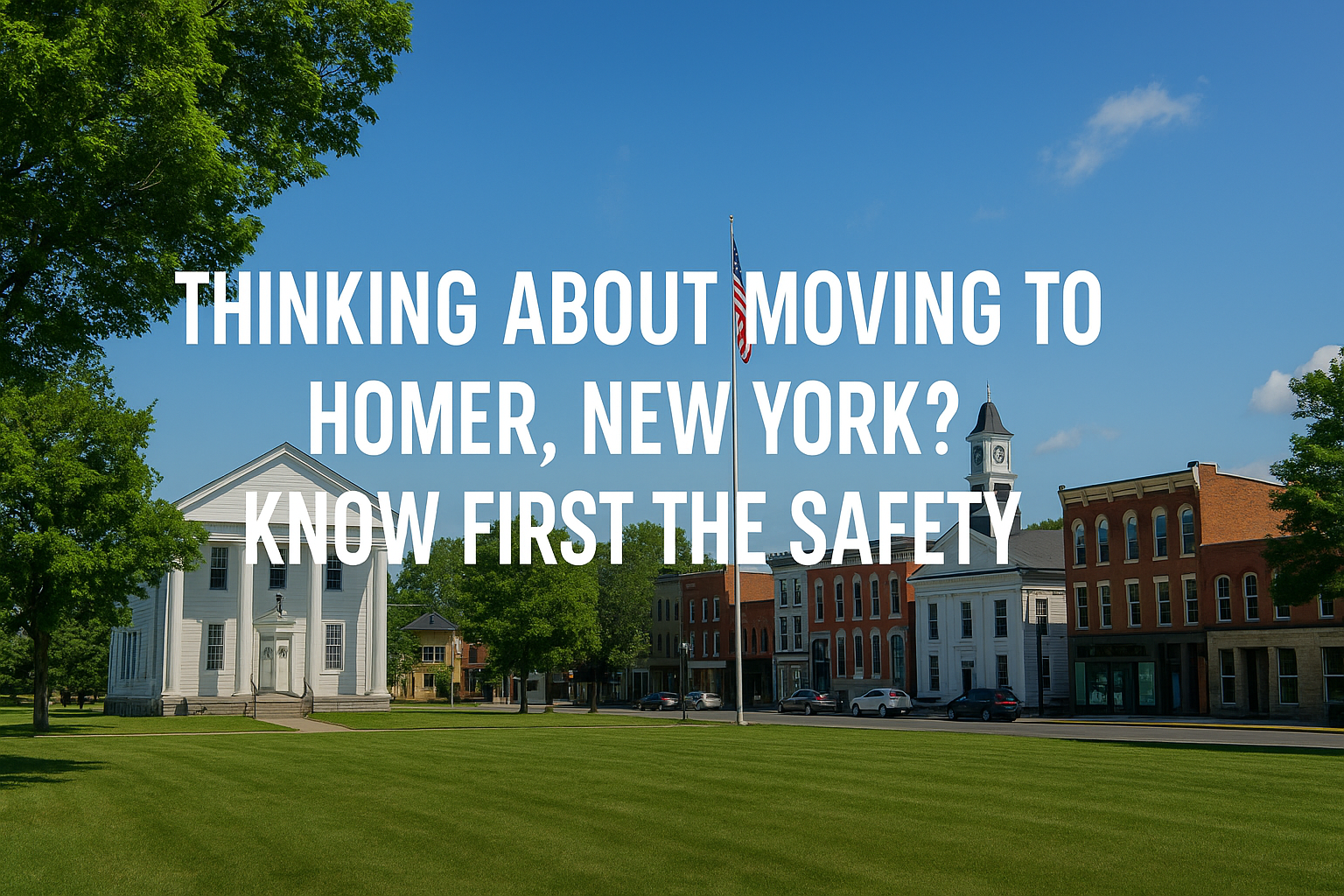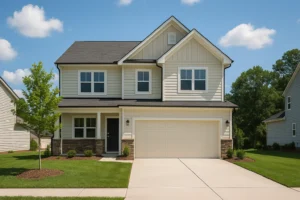Homer, New York is a small village with charm, history, and a peaceful vibe. It sits in Cortland County, surrounded by green land and quiet streets. Many people think about moving here for a fresh start or a slower pace of life. Families, retirees, and young couples all see the appeal of this town.
Before making the move, safety becomes a big question. No one wants to move somewhere that feels risky. Even in small towns, crime can exist. It helps to know the truth, not just what a picture shows or a friend says. This article gives a clear view of safety in Homer, based on facts, local insight, and reports.
Many sources now list Homer as one of the safest towns in New York. Some even rank it high across the entire country. But numbers alone do not tell the whole story. Life feels different in a safe town. The air feels calm. Neighbors greet each other. Kids ride bikes. These are signs of safety that go beyond data.
This guide breaks it all down. It explains crime rates, local response, community life, and what new residents should expect. Whether you rent or buy, safety should guide your choice. Let’s look at what makes Homer stand out.
Crime Rates in Homer: What the Data Shows
Recent reports from FBI data and public safety sites give Homer strong scores. Violent crime is very rare. Property crime stays below state and national averages. According to NeighborhoodScout, your chance of facing a violent crime in Homer is 1 in 10,000. That is lower than in most places.
The village also ranks safer than 81% of U.S. communities. That is not a small number. It means that if you live in Homer, you stand in one of the safest areas in the country. People often feel it too. They sleep well. They walk at night, They trust their neighbors.
Property crimes do happen. Small theft, car break-ins, and occasional vandalism can occur. But these are rare. Local police respond fast. Many residents take simple steps like locking doors and using porch lights. These habits add an extra layer of peace.
What Locals Say About Life in Homer
Data matters, but local voices give the full picture. Residents often describe Homer as calm, clean, and quiet. Many say they feel safe walking their dogs or letting kids play outside. People know their neighbors and often greet them with a wave.
Schools have strong reputations. Parents trust the local district. Kids ride bikes to school or walk with friends. This kind of freedom only happens in towns that feel safe. Families often stay here long-term, which builds trust and care in the community.
One resident shared, “I grew up here, moved away, and came back to raise my own kids. It still feels like home and still feels safe.”
This type of review matters. It tells you not just that people live in Homer, but that they stay. Long-term trust says more than one-time visits. People choose Homer again and again.
Police Presence and Emergency Response
Homer has its own police force. It works closely with the Cortland County Sheriff’s Office and other nearby agencies. This network helps cover the area well. Officers patrol often. They know the roads and the people. That builds faster response and stronger community ties.
Emergency services also include fire and medical support. Local stations stay active and ready. In small towns, that can make all the difference. It means you do not wait long in a crisis.
The police also stay involved with the community. They host events, give talks, and take part in local fairs. This makes law enforcement more visible, friendly, and trusted. Residents do not just see officers during a problem. They see them in daily life.
Community Watch and Involvement
Many towns have watch groups. Homer does not rely on one formal group. Instead, it grows safety through connection. People watch out for each other. They call if something looks off. They share updates on local Facebook groups or at town meetings.
This kind of informal watch works well. It shows that people care and stay alert. It also builds comfort. When neighbors look out for one another, crime has less space to grow. Thieves avoid towns where people pay attention.
Small things help too. Lights stay on at night. Dogs bark. Mail gets picked up. These signals show that homes are active and cared for. That stops trouble before it starts.
Why Safety Matters in a Move
Safety does more than lower crime risk. It shapes your daily life. In a safe town, stress levels drop. Kids grow with more freedom. You walk outside more. You talk to neighbors. These things create health, joy, and trust.
When a town feels safe, it grows stronger. Local stores stay open longer. Schools improve. Property values rise. Safety adds value, not just peace of mind. It becomes part of the town’s appeal and future.
In Homer, the signs point to lasting safety. It is not just a good year or a good month. It is a pattern. Reports back it. Locals support it. Life reflects it.
What to Expect as a New Resident
If you move to Homer, expect a calm pace. Roads stay clear. Neighbors say hello. The local library stays active. Stores close early. Life runs simple, not rushed.
You may not need heavy locks or alarm systems. You may leave your car door open while unloading groceries. These things become normal. Over time, they bring comfort.
Of course, smart habits still help. Lock your door. Stay aware. Meet your neighbors. Join local pages. These steps fit any place, even safe ones. But in Homer, they add to a strong base, not patch a weak one.
Conclusion
Yes, Homer is safe. The numbers prove it. The locals confirm it. The feeling on the ground supports it. You can walk the streets and feel peace. You can let your kids play and trust the moment.
Moving is a big step. Safety plays a key role. In Homer, that box checks green. This town gives more than just low crime. It gives calm mornings, friendly waves, and real peace of mind. That matters more than stats.
If you want a town that feels like home, Homer may be your place. Not just safe on paper, but safe in your heart too. That is rare. That is worth the move.
Read more: Detached Family Homes Explained: Space, Privacy, and Value




